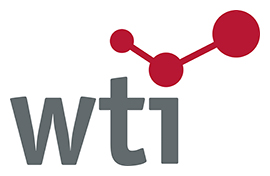Aims and Scope
Editor's Choice
Ligamentous Knee Joint Instability: Association with Chronic Conditions of the Knee and Treatment with Prolotherapy
Ross A. Hauser, Danielle Steilen-Matias, Johanna B. Lackner, Benjamin R. Rawlings, Jeevan Mann, Torin Grogan, Anna Phillips
Ligamentous knee joint instability and other conditions associated with knee dysfunction are common musculoskeletal complaints that affect a large percentage of the global population. A healthy knee has normal joint mechanics and can maintain its stability as it responds to the forces placed upon it. Once undue forces, whether from injury, wear and tear, or overuse, cause the soft tissue structures of the knee to stretch beyond their normal range of motion, they can become lax, elongated, damaged, or torn, especially the ligaments. This condition, known as ligamentous knee instability, causes destructive joint forces to occur, which results in the development of other pathophysiologic conditions related to knee dysfunction, including osteoarthritis, patellar pain syndromes, tendinopathies, meniscus tears, and osteochondral defects. Traditional treatments address the consequences of joint instability, such as synovitis and joint swelling, but do not address the underlying ligament and/or disease that led to the joint instability. Prolotherapy promotes the repair of injured or degenerated tissues, such as ligaments, tendons, and menisci, by stimulating the physiological healing process of the joint. This process corrects the underlying joint instability, reduces associated pain, improves knee function, and has the potential to slow the degenerative process.
November 15, 2023
Other Post
- February 23, 2023

Sample Size Estimation for a Non-inferiority Pain Management Trial
October 06, 2023
The Use of Technology in Enhancing Nurses' Pain Management Competencies: A Narrative Review
May 31, 2019
The Effect of Distraction with a Loved One’s Voice on Pain Reduction While Extracting the Chest Tube after Open Heart Surgery
December 31, 2018
Pain and Decision-Making: Interrelated Through Homeostasis


















